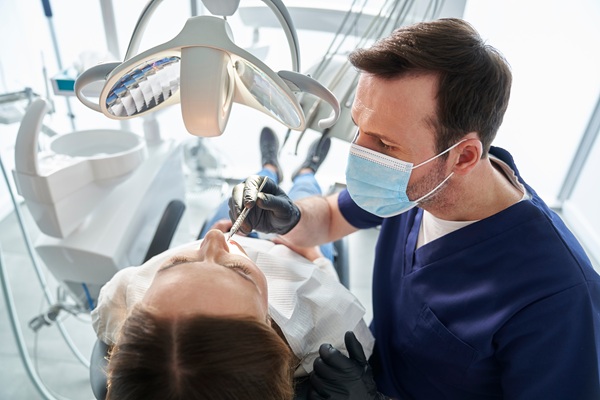Oral Care During Pregnancy
Pregnancy is very exciting for the soon-to-be mom and family. Excitement, however, also comes with more responsibilities: to watch what you eat and drink, and to take care of your body and the precious little one. At the same time, women experience hormonal, psychological and physical changes in the body. As dental providers, we often see the results of hormonal influences in the health of pregnant women’s teeth, which are more prone to gum disease. It is very important to educate expectant mothers about the oral health vulnerability posed by pregnancy, and to teach them proactive measures to prevent troublesome dental outcomes.

Gingivitis
Gingivitis is inflammation of the gums. Hormonal changes during pregnancy contribute to gingival inflammation. Gum tissue becomes more sensitive to plaque and overreacts to the deposits on teeth and surrounding tissue. Brushing twice daily and flossing is highly recommended. Routine dental visits are beyond safe during pregnancy – they are needed! Sometimes we even advise more frequent recall appointments for dental cleaning during pregnancy.
Morning Sickness
During pregnancy, some mothers experience severe morning sickness that even goes into the 3rd trimester. To neutralize the acids in the oral cavity after vomiting, rinse the mouth with water mixed with a tablespoon of baking soda. Talk to your Ob-Gyn if the symptoms are severe.
Dental Caries
There is a common myth that pregnancy weakens the mother’s teeth. It is not true. While tooth development in the fetus starts in the second trimester, the baby gets calcium and nutrients from dietary sources, not from mom’s teeth or bones.
The increase in the risk of caries during pregnancy is attributed to frequent snacking. It is common to have cravings for certain foods during pregnancy, and to have an increased appetite. Limit frequent snacking with foods containing high sugar amounts, and substitute with vegetables, yogurt or cheese. Eat healthy and talk to your physician or dietician if you have further questions.
Teeth Whitening
It is safe to use whitening toothpaste during pregnancy, as they contain low levels of bleaching agent. There is no proven evidence that teeth whitening is harmful during pregnancy, but it is advisable to hold off on professional teeth whitening until after pregnancy, as it contains more carbamide peroxide and hydrogen peroxide which may pass through placenta.
Dental Treatment
Routine dental visits are recommended and safe for the mother and the baby. Dental radiographs during pregnancy are needed and safe. Proper barriers will be placed before taking radiographs to prevent unnecessary exposure to radiation. Putting off dental treatment because of pregnancy is not recommended, and may end up with you suffering tooth pain on top of being pregnant. Talk to your Ob-Gyn if you have any concerns. We assure you that at Oak Tree Dental, we will be happy to answer any of your dental related questions or concerns.
Tell your dental provider if you are pregnant or want to be pregnant so we can talk with your physician or Ob-Gyn before we start any dental procedure. This is particularly critical in high risk pregnancy cases.
Healthy tips to follow during pregnancy:- Brush twice daily with fluoride toothpaste
- Floss at least once a day even if your gums are bleeding
- Eat healthy foods and limit snacking
- Use antimicrobial mouthwash to control plaque
Visit us at Oak Tree Dental for your regular dental check up, cleaning and maintenance appointments. Feel free to call 703-442-8733 or email
[email protected] with questions or concerns.


